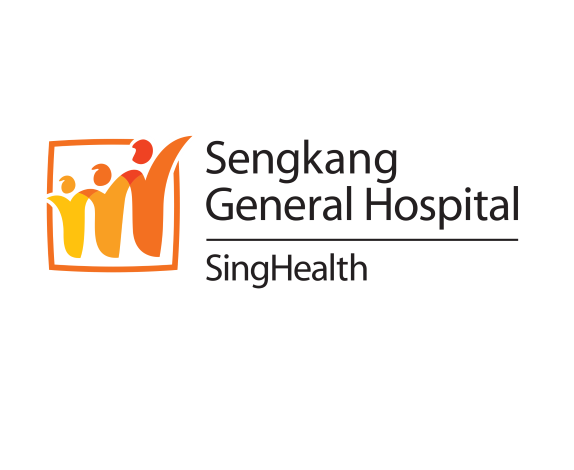About the team you are joining
Reporting to the Regional Director Operations Safety and Security (OSS) – Asia Pacific, the incumbent will be responsible for driving activities in the Asia Pacific Region to support continuous improvement in regional aviation safety.
Specifically, the Senior Manager, Safety will be responsible for utilizing centrally coordinated IATA policies and procedures to support advancements in regional safety performance; will take a proactive role to identify new, and emerging, regional issues impacting aviation safety and, collaborating with centrally located IATA experts, determine whether these issues are systemic or local in nature; lead the delivery of regional safety initiatives to support capacity building across industry.
They will support initiatives to enhance safety throughout the region by influencing a network of high-level contacts within airlines, government authorities, air navigation service providers, airports, other international agencies, and ICAO.
About the team you are joining
Reporting to the Regional Director Operations Safety and Security (OSS) – Asia Pacific, the incumbent will be responsible for driving activities in the Asia Pacific Region to support continuous improvement in regional aviation safety.
Specifically, the Senior Manager, Safety will be responsible for utilizing centrally coordinated IATA policies and procedures to support advancements in regional safety performance; will take a proactive role to identify new, and emerging, regional issues impacting aviation safety and, collaborating with centrally located IATA experts, determine whether these issues are systemic or local in nature; lead the delivery of regional safety initiatives to support capacity building across industry.
They will support initiatives to enhance safety throughout the region by influencing a network of high-level contacts within airlines, government authorities, air navigation service providers, airports, other international agencies, and ICAO.
What your day would be like
- Leverage the IATA Safety Strategy to deliver on safety priorities, identified though IATA safety management activities and/or IATA governance groups, to achieve the timely implementation of IATA global programs or locally targeted action plans across Asia Pacific.
- Promote IATA safety policies and strategies with ICAO, Government Authorities and Agencies, Air Navigation Service Providers (ANSP) and Airport Authorities responsible for the planning, implementation and operation of air navigation and airport facilities, to deliver safety improvements.
- Identify, develop activities, and deliver safety improvement programs aimed to rectify any safety deficiencies within the region collaborating with governments, airlines, ANSPs and airports utilizing regional aviation safety forums such as RASG and APRAST. This may include the development of country specific safety strategies.
- Engage stakeholders, and actively promote, the IATA Safety Strategy around the three strategic goals relating to Safety Leadership, Safety Risk and Safety Connect to drive the:evolution of safety culture and reporting;
prioritization of identifying and addressing safety risks;
evolution of IATA audit programs;
growth of a safety community, connecting all IATA airlines, across the region.
- Support promotion, and engagement, with the IATA Operational Safety Audit (IOSA) program whilst looking at new opportunities to expand the program.
- Support IATA's regional ground safety audit activities including the IATA Safety Audit for Ground Operations (ISAGO).
- Support IATA's regional safety data activities including the Global Aviation Data Management Program (GADM).
- Contribute to the commercial strategy and targets assigned to the region by promoting IATA products and services.
- Coordinate airline input during regional ICAO/CAA rule-making and standard-setting processes.
- Respond to tactical issues arising in day-to-day operations in the region as well as provide information and support to IATA member airlines during periods of disruption/contingency operations.
What your day would be like
· Leverage the IATA Safety Strategy to deliver on safety priorities, identified though IATA safety management activities and/or IATA governance groups, to achieve the timely implementation of IATA global programs or locally targeted action plans across Asia Pacific.
· Promote IATA safety policies and strategies with ICAO, Government Authorities and Agencies, Air Navigation Service Providers (ANSP) and Airport Authorities responsible for the planning, implementation and operation of air navigation and airport facilities, to deliver safety improvements.
· Identify, develop activities, and deliver safety improvement programs aimed to rectify any safety deficiencies within the region collaborating with governments, airlines, ANSPs and airports utilizing regional aviation safety forums such as RASG and APRAST. This may include the development of country specific safety strategies.
· Engage stakeholders, and actively promote, the IATA Safety Strategy around the three strategic goals relating to Safety Leadership, Safety Risk and Safety Connect to drive the:
· evolution of safety culture and reporting;
· prioritization of identifying and addressing safety risks;
· evolution of IATA audit programs;
· growth of a safety community, connecting all IATA airlines, across the region.
· Support promotion, and engagement, with the IATA Operational Safety Audit (IOSA) program whilst looking at new opportunities to expand the program.
· Support IATA's regional ground safety audit activities including the IATA Safety Audit for Ground Operations (ISAGO).
· Support IATA's regional safety data activities including the Global Aviation Data Management Program (GADM).
· Contribute to the commercial strategy and targets assigned to the region by promoting IATA products and services.
· Coordinate airline input during regional ICAO/CAA rule-making and standard-setting processes.
· Respond to tactical issues arising in day-to-day operations in the region as well as provide information and support to IATA member airlines during periods of disruption/contingency operations.
We would love to hear from you if you have
- Extensive aviation background/experience in positions involved in safety, operations, certification and/or regulation of civil air transport operations (strong preference given to candidates with experience as a pilot).
- Qualifications in aviation management or other relevant discipline (relevant professional qualifications may be considered in lieu of a university degree).
- A high degree of analytical skill and technical knowledge in the provision of air transport services with knowledge of ICAO standards and recommended practices, industry best practices and civil aviation operational procedures.
- An understanding of air safety investigation and/or risk-based airline auditing in a multidisciplinary environment would be beneficial.
- Comprehensive understanding of safety information sharing programs and data management methodology.
- Ability to work remotely from core safety team, based in Geneva and Montreal, to independently deliver on activities agreed upon by centrally located subject matter experts.
- Comfortable to perform under pressure to deliver outcomes upon clearly defined timelines.
- Confident to report regularly to core safety team on progress made, and challenges experienced, against pre-determined metrics for agreed objectives.
- Ability to deal with member airlines at a technical, safety and operational level with a positive approach to problem solving.
- Ability to effectively advocate across a wide range of aviation stakeholders, by promoting IATA activities and the benefits that desired outcomes will achieve, to gain industry buy-in.
- The ability to speak in public and deliver key messages to a diverse range of stakeholders.
- Diplomacy in relationships with contacts in government and other key organizations.
- Fluency in English.
- Able to travel when required whilst managing a large and dynamic workload.
























